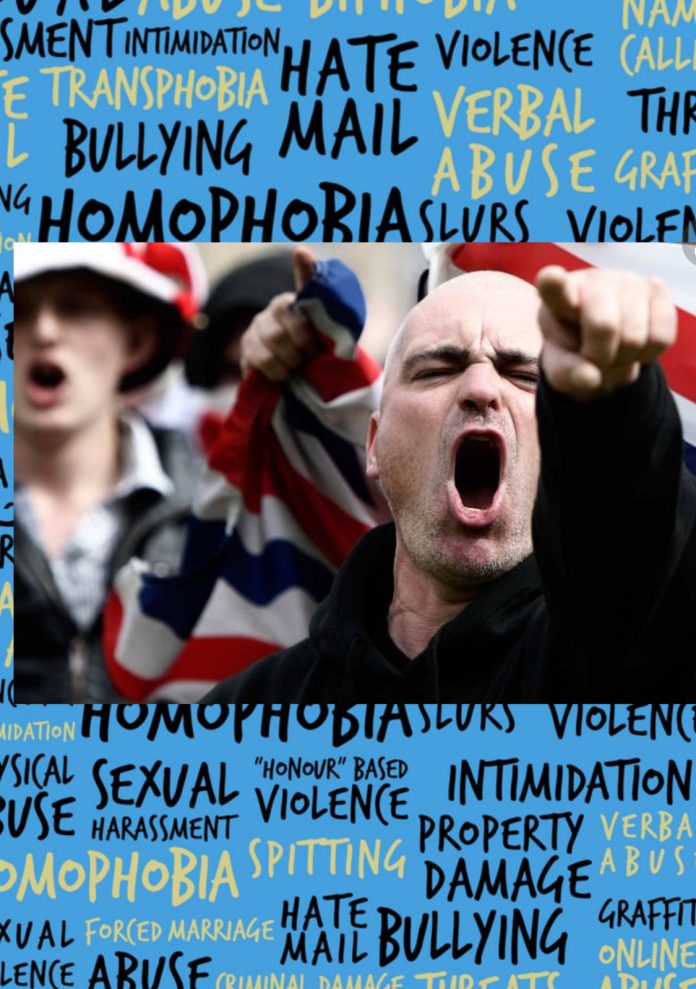In recent years, the rise of far-right extremism has become a growing concern across the UK and beyond. While political and societal factors play a role, one of the most troubling aspects is the way in which vulnerable young people and disillusioned adults are being drawn into these ideologies.
The Allure of Extremism for the Lost and Angry
Many individuals who fall into the grip of far-right movements are not inherently hateful or prejudiced. Instead, they are often people searching for purpose, belonging, and identity in a world that feels increasingly uncertain. The far right offers a deceptively simple narrative: the world is against them, and only through collective action can they fight back against an imagined enemy.
One former extremist highlights a disturbing trend: younger people are being actively recruited online, often without realising it. Predators within these groups manipulate their emotions and grievances, conditioning them to believe that their struggles—be they economic, social, or personal—are the fault of an external group. The target of this blame shifts over time. For some, it was “Asians”; for others, it was “Muslims”; during the Covid pandemic, it became the so-called “elites” controlling the government. Now, the rhetoric has evolved again, with “multiculturalism” being painted as an existential threat to white identity.
The Role of Fitness and Masculinity
A particularly insidious method of recruitment has emerged in recent years: the use of fitness culture and masculinity as gateways into extremist ideology. Some far-right groups exploit the desire of young men to be physically strong and assertive, promoting “gym fit” aesthetics as part of an idealised version of masculinity. Through fitness forums and social media spaces, they intertwine self-improvement with radicalisation, convincing recruits that embracing far-right ideology is a natural extension of becoming “stronger” and “more disciplined”.
A key figure in this shift is Nick Marcel Tenconi, the leader of the UK Independence Party (UKIP) and Chief Operating Officer of the right-wing pressure group Turning Point UK (TPUK). As a self-employed personal trainer, Tenconi has positioned himself as a defender of “masculinity, Christianity, and conservative values”. His leadership in TPUK has seen him involved in organising protests against drag queen storytime events and Palestine solidarity marches, often leading to violent confrontations. His rhetoric has echoed far-right themes, portraying multiculturalism as a threat and aligning with extremist figures such as Tommy Robinson and Katie Hopkins.
Tenconi’s involvement in street demonstrations has frequently turned aggressive. Reports indicate that during TPUK-led protests in London’s Honour Oak, he personally engaged in acts of intimidation, offering to physically fight counter-protesters. At anti-migrant protests in Plymouth, Aldershot, and Reading, he led chants of “invaders out”, fuelling hostility toward asylum seekers and immigrants. His presence at a violent protest in London on 1 August 2024 further cemented his reputation as a far-right agitator.
Under his leadership, UKIP has attempted to align itself more closely with hard-right figures, including anti-Islam activist Calvin Robinson. The party has engaged in discussions with controversial influencer Katie Hopkins and has sought closer ties with Tommy Robinson. These developments indicate a shift towards a more extreme stance, echoing far-right conspiracy theories, particularly around migration and government control.
Breaking Free from Hate
Escaping the clutches of extremism is difficult, but it is not impossible. Those who have managed to leave these movements often speak of key turning points in their lives—moments of realisation that shattered the illusions they had been fed.
One crucial step is education. When individuals are exposed to the realities of the people they once demonised, they begin to see them as fellow human beings rather than enemies. Outreach programmes that connect former extremists with survivors of hate crimes can be particularly powerful in fostering empathy and dismantling prejudices.
Another vital aspect is support. Many who are drawn to far-right ideology suffer from loneliness, trauma, or economic hardship. By providing them with genuine community support—through mental health services, job opportunities, and social initiatives—society can offer an alternative to the false sense of belonging that extremist groups provide.
Lastly, the role of technology and counter-extremism efforts cannot be overstated. Social media companies must take responsibility for cracking down on hate-driven content, while governments and organisations should invest in deradicalisation programmes. Crucially, individuals who have left these groups can serve as mentors, guiding others away from the toxic narratives that once ensnared them.
A Society That Heals, Not Divides
Far-right extremism thrives on fear, isolation, and scapegoating. By addressing the root causes—poverty, lack of community, and misinformation—we can build a society where people do not feel the need to seek answers in hate. For those who have already been pulled into these ideologies, there is always a way back.
Leaving hate behind requires courage, but it is a journey worth taking—for the individual, for their community, and for the future of a more inclusive and compassionate society.







